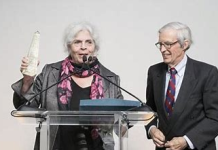By Denise-Marie Ordway, Orlando Sentinel
http://www.sun-sentinel.com/news/education/os-university-florida-free-online-class-20120920,0,6458017.story
It’s tough to get into the University of Florida. The state’s unofficial flagship school accepts the brightest high-school graduates.
By early next year, though, the school will offer several courses to anybody, anywhere, with an Internet connection.
UF has joined the growing ranks of top-tier universities that have started offering free classes known as MOOCs, or Massive Open Online Courses — a global experiment in higher education that some argue could revolutionize it.
Teenagers, college students, working moms and retirees who never thought they would get a chance to learn from a professor at an Ivy League school or leading research university can now take a course online without paying a nickel in tuition.
There’s a significant drawback, however: Students’ work won’t earn them any college credit, which has drawn criticism from those who argue that expanding college access should also translate into more Americans earning degrees.
UF and 16 other big-name schools announced this week that they will bring some of their content to an Internet platform called Coursera, which now hosts 200 classes from 33 institutions.
Since its launch just months ago, Coursera has drawn 1.4 million people to study a variety of topics — from bioelectricity at Duke University and algorithms at Princeton University to «obesity economics» at Johns Hopkins University and European mysticism at the Hebrew University of Jerusalem.
UF is the only Florida university to join. Florida State University, however, is considering eventually offering free online courses.
UF will introduce six classes by early 2013, some of which focus on environmental issues, said Andy McCollough, associate provost for teaching and technology.
UF signed on because it didn’t want to be left behind, even though colleges still aren’t sure what return they will get for their efforts.
Administrators at UF hope participating on Coursera will help them learn a lot more about online learning, although they’ve hosted online classes for their regular, tuition-paying students for years, McCollough said.
It’s a field that’s expanding rapidly in the Sunshine State, where construction funding has long failed to keep up with public universities’ enrollment growth. State education leaders just recently began researching the possibility of creating Florida’s first virtual public university.
Florida already is known nationally as a pioneer in online learning for those in kindergarten through 12th grade.
«As you can imagine, if we have courses that have thousands of students, we’ll get a lot of data, and that can make us better at what we’re already doing,» McCollough said, adding that «there is no question there are ancillary benefits of being part of consortium with universities like Stanford.»
Columbia University, an Ivy League school in New York also experimenting with online education, will offer at least two classes through Coursera during spring semester.
Then officials will determine whether they want to continue, said Sree Sreenivasan, Columbia’s chief digital officer.
«We’re doing this in a very cautious, deliberate manner,» he said. «We want to see what works and what doesn’t.»
Unlike traditional college courses, which often feature lectures lasting 50 minutes or more, Coursera courses offer lectures «chunked» into 15- to 20-minute video segments.
The videos are accompanied by homework assignments sometimes graded by students’ peers, as well as computerized quizzes and online discussions. Some students join in-person «Meetups» held in key geographic locations.
For each course, students take at least one major exam, which tends to be limited to multiple-choice and short-answer questions.
In many cases, if students complete a certain number of assignments and get high enough grades on quizzes and exams, they will receive a certificate of completion at the end of the course.
Professors such as Mohamed Noor at Duke and Jeff Leek at Johns Hopkins are enthusiastic about the courses they will start teaching via Coursera in coming months. Both acknowledged, however, that Coursera students won’t get the same one-on-one interaction, considering Coursera often enrolls tens of thousands of students per class.
But will their regular tuition-paying students feel cheated that Coursera students get to work with these two scholars for free?
Leek said he thinks the work he puts into producing materials for Coursera will end up benefiting the students who pay for his time.
«Actually, by putting a lot of the lecture videos together for Coursera, I free up even more time for one-on-one interaction with Hopkins students,» he said. «So I hope, at the end of the day, that my involvement with Coursera actually improves the education for local students.»



















